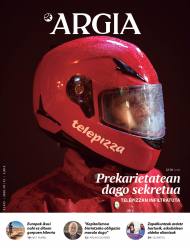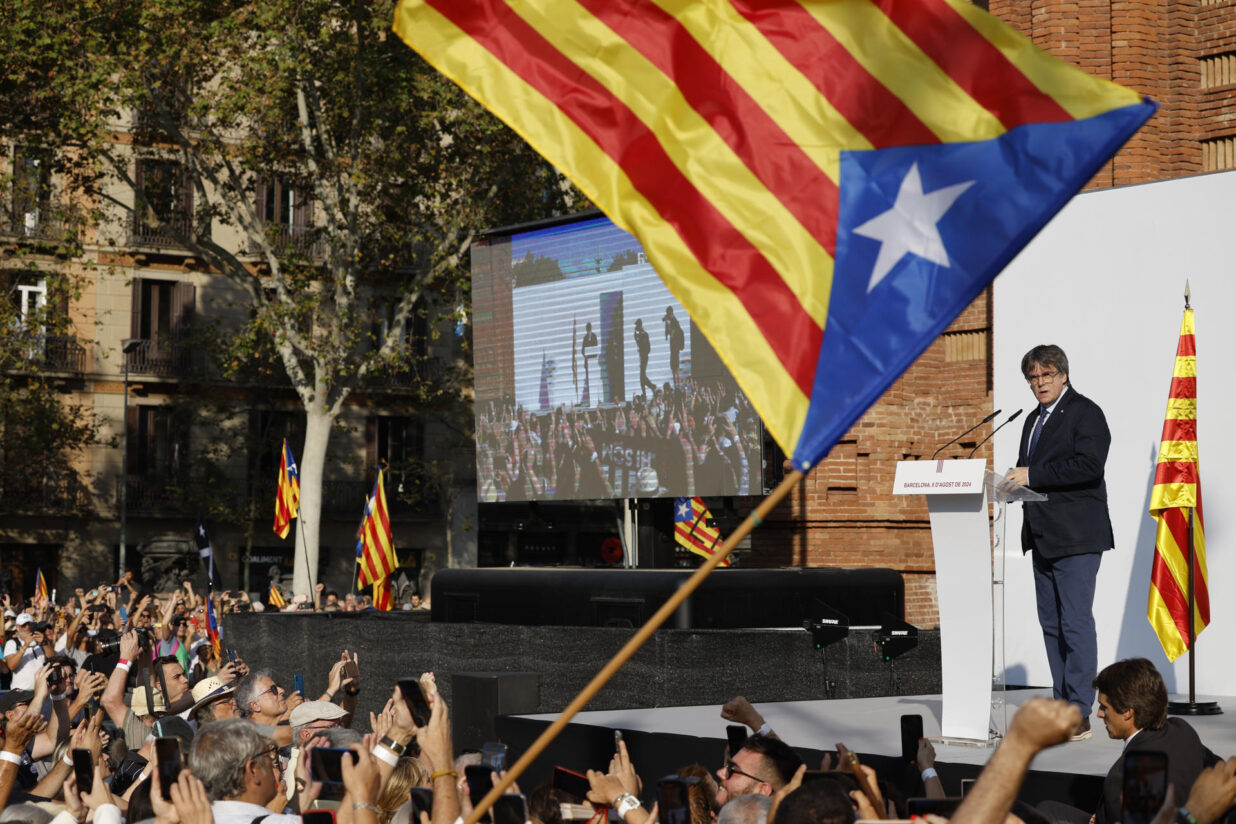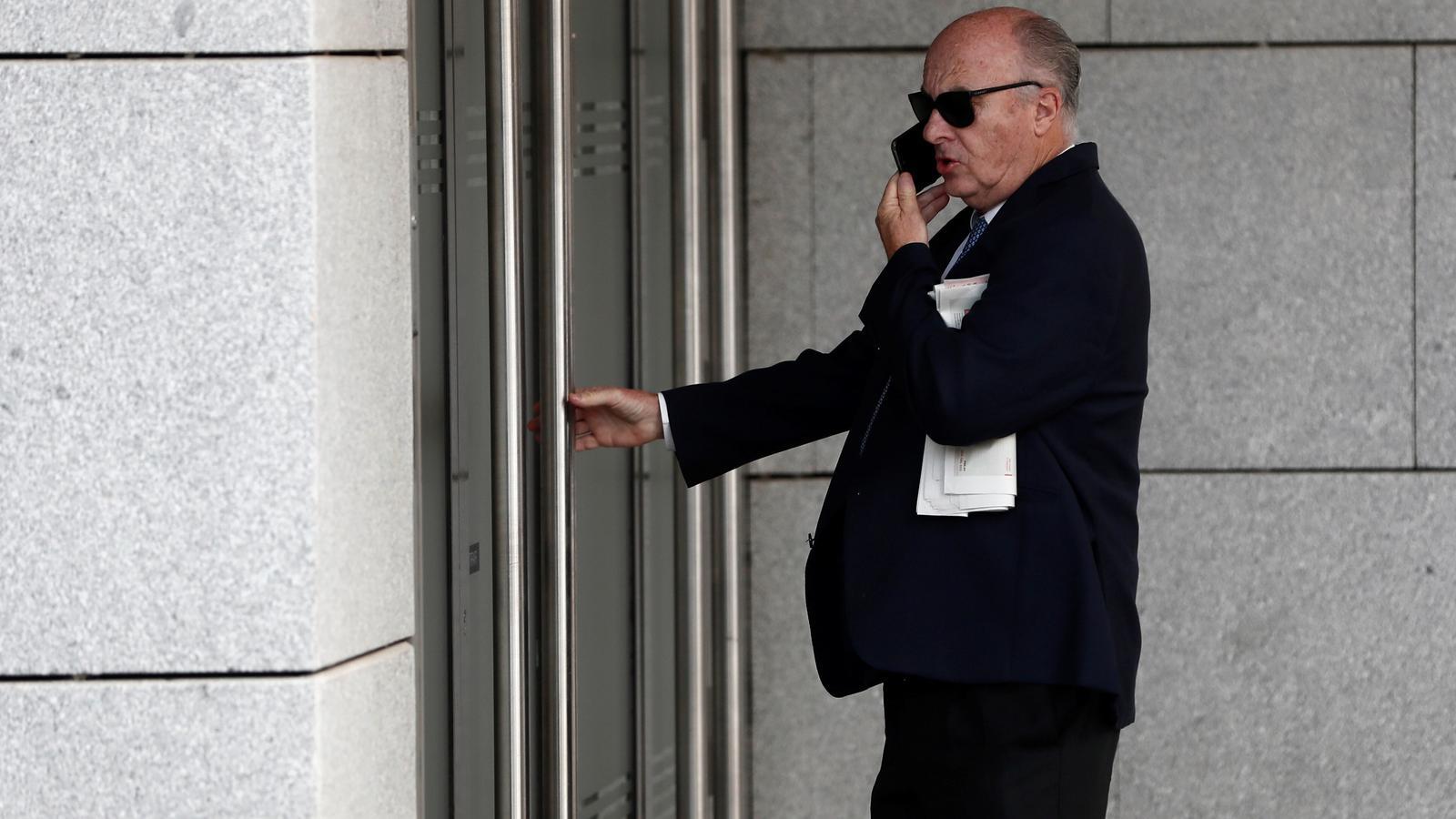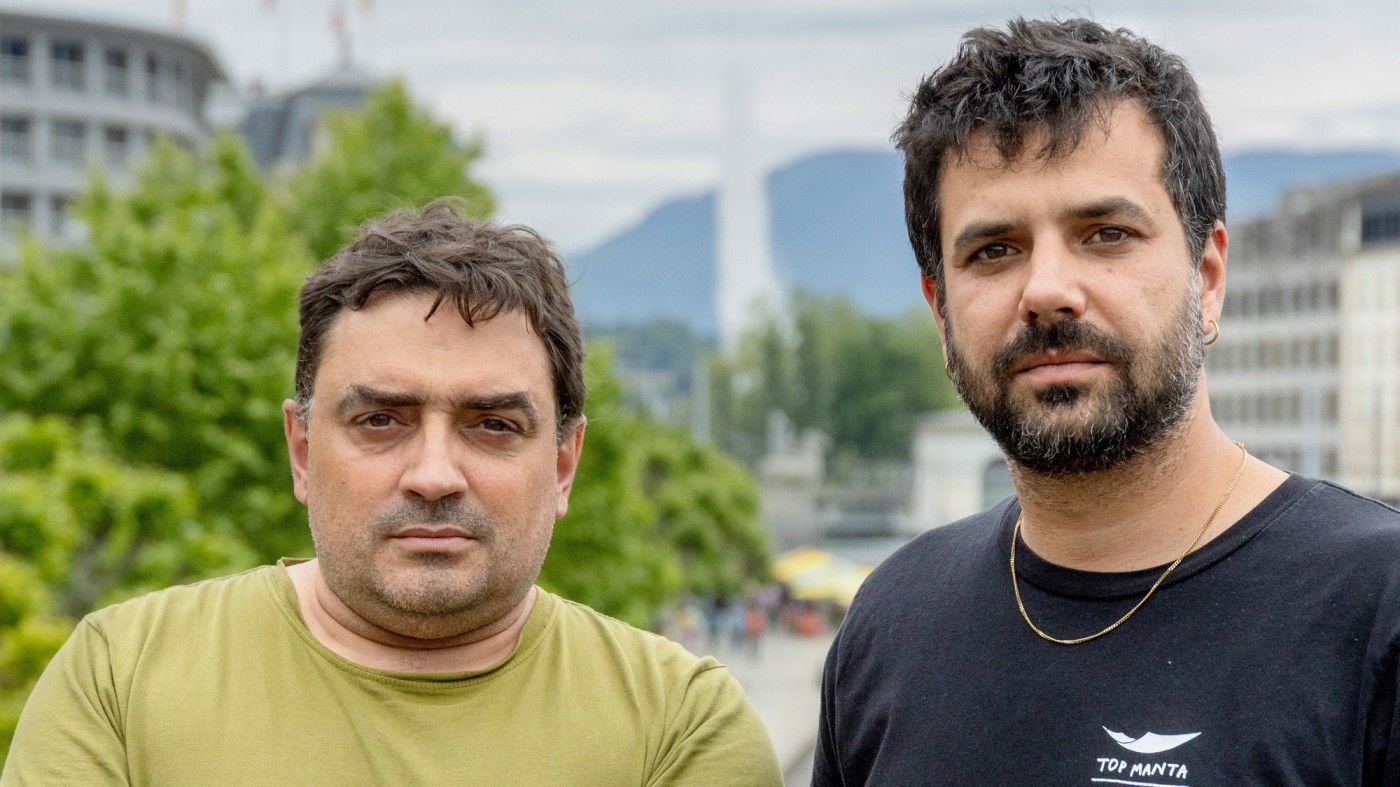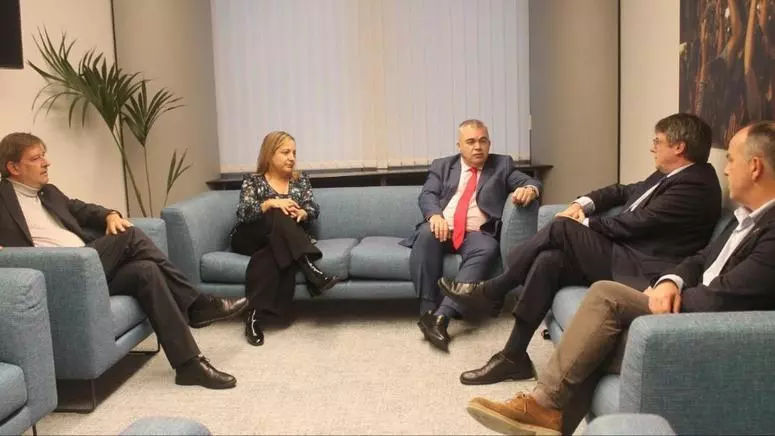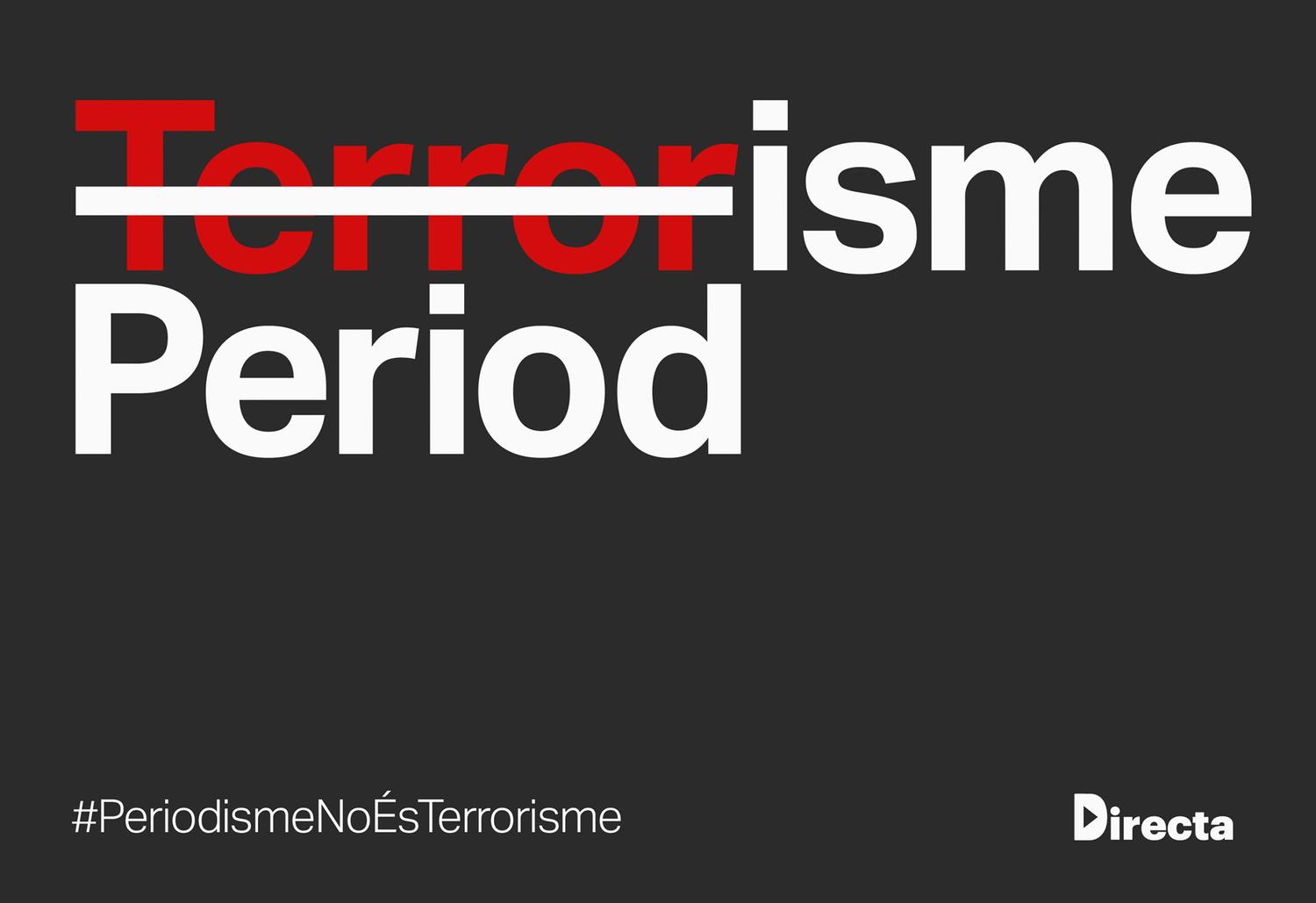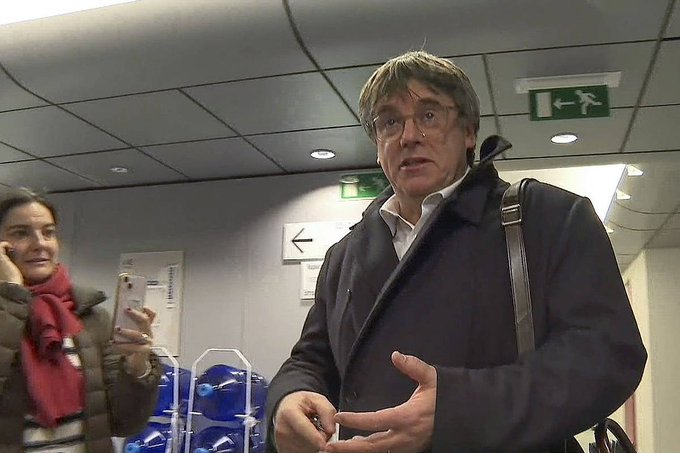"The declaration of independence was an urgent decision"
- In Murgia (Álava) we met a speaker in a small room, although he spoke in large forums on issues such as peace, human rights, social justice. Or the economic system. Whatever the issue, Arcadi Oliveres will always leave a trail of the activist. Despite starting to talk about the economy, we were soon talking about the situation in Catalonia.
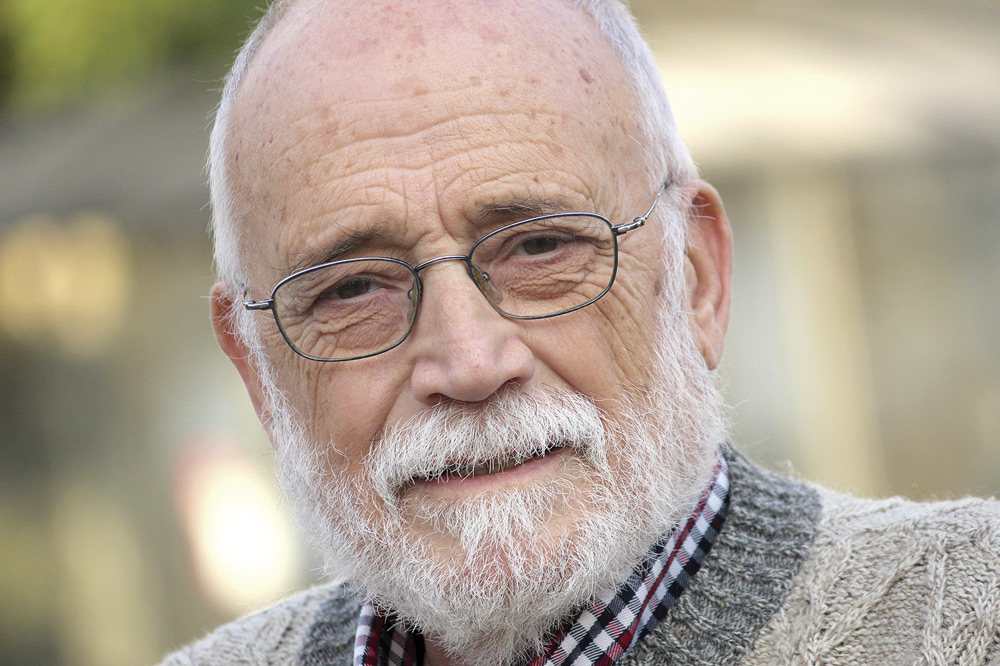
Ekonomia Aplikatua irakasle izan da Bartzelonako Unibertsitatean eta hainbat liburu eta publikazio ditu argitaratuak Ipar-Hego harremanez, nazioarteko merkataritzaz edota kanpo zorraz. Oroz gain, militante eta aktibista jardun du bere bizi guztian. Justícia i Pau elkarteko kide eta buru izan zen, bakea eta justizia soziala helburu. Aurten bertan, Bartzelonako Udalaren Merezimendu zibikoaren domina jaso du, bi xedeon alde egin duen lanaren sari.
You spoke of the economic system in your November speech in Murgia (Álava), days after the Spanish elections. Does anyone have time to think about the economic system in the midst of the whirlwind that Catalonia is experiencing?
We should have it. The truth is that we have been reflecting for some time on the need to change the economic system. Even before the debate on independence, it was clear that the economic system was in question, that it had to change. In the 1990s, and even later years, the debate on external debt, the global social forum, the rest of the changes to be made within the U.N.… All those concerns are proof of the need to change the system.
Where do we start to change the system?
Of the breakdown of capitalism, no doubt.
It’s easier to say…
...rather than. I know. The obligation, however, is the moral obligation to destroy capitalism. Capitalism is a criminal system, a murderer. It must be destroyed by this, without other coplas, devastated. Capitalism, in fact, is an economic system that, as an economic system, must meet people's needs. But capitalism doesn't satisfy anything, nor does it satisfy people's hunger. There is enough food and food in the world, while some 25,000 people starve to death a day. It is unacceptable. 30 percent of the food goes directly into the trash. Capitalism is a false system.
It does not meet people's needs. Those of us who live in rich countries do, in part.
The distribution of wealth is scary: in one, the richest, in the other, the poorest. What is more, the differences between the two are increasing, whether they are the differences in wealth between people and other countries. Capitalism is also a system that destroys the environment. It wastes nature's issues, and along this path, the next generation will have to breathe the muddy air, lack natural resources, suffer the consequences of warming... Having said that, capitalism must be destroyed tomorrow morning and, if possible, right now.
Are there protocols to be able to devastate capitalism?
There are no protocols, and devastating is not an easy task, because capitalism is a very strong system. Big finance, businessmen, military power are always behind capitalism… Therefore, the most direct way to defeat capitalism is to create and develop alternatives. Last November, the Social Economy, Transformative, Solidarity and Cooperative Trade Fair was held in Barcelona, and I know that there are also initiatives of this kind in Euskal Herria. Ethical banking, local agriculture, responsible consumption… are the demand of the new system. The alternative to the destruction of capitalism is the construction of a new world.
"That would be my goal: solidarity independence"
Why has Catalonia exploded after killing?
Because there has been a process, because things have come one after another. It is said that the dictator died and there was a Transition, but it is wrong, because nothing went on, things fell silent, in exchange for a statute of autonomy. It is clear that this statute was not sufficient and that the passage of time forced its updating. This was recognised by the Catalan Parliament, and it was astonishingly rejected by the Spanish Constitutional Court. That led to a wave of protests, in which I participated myself. I remember being there, in a big demonstration, on 10 July 2010. Maybe it was the first big demonstration.
You've done eleven, which is bigger...
Yes. On that occasion we asked only for an update of the statute of autonomy. We thought we were on time. But the wind would rise us up. We were denied all the amendments that would increase our autonomy and people protested strongly. The Spanish President, Mariano Rajoy, was an excellent collaborator and partner, who gave us votes every time. So, little by little, the flan started to swell, to swell, until we got away from the reform of the statute of autonomy, and without hair, we started talking about self-determination and independence.
You mentioned the year 2010, the request for renewal of the Statute. Three years later, you formed a platform for independence.
A nun [Teresa Forcades] and I tried. It was not a platform for independence. The name itself clearly denoted our will: Constituent. In other words, our intention was to initiate the process of establishing the Republic, but on the left. At that time we did not want a Catalan constitution, but the union of all the forces of the left, and in this case, I wanted to say “left” to all those who were on the left of the PSOE, in favor of real change. And, above all, those who wanted change in social policies, but without neglecting linguistic policies, migration policies, etc.
Did you make the way?
Somehow, because We Can was created three months after we were created. And not long after that, so does the CUP. And our large number of amateurs and affiliates – as in the first month we joined 47,000 members – went to them. Consequently, our political projection was limited. One for the Cup, one for Podemos. And everyone in the same Procés, boiling. Our meetings offered ping-pong matches, no concrete initiative could be put in place. However, we were able to write reflections and write what kind of country we wanted. We wanted independence, in that there was no struggle, but we needed to define the country we would like in relation to economic relations, migration, the army, the monarchy, etc. At least that asset, that written reflection, is there, on the website of our platform, and I still think it is worth taking into account.

This asset was their good.
We have not had great political achievements, but some of our militants have done an inescapable job in the future: Xavi Domenech, Gerardo Pisarello, Jaume Asens, Albano Dante Fachin… They were our militants and then, with all legitimacy, decided to make a specific political struggle. However, they are partly influenced by our way of thinking. So there you have two assets. We also have more, perhaps less echo, but precious: the success we have had in many small municipalities, concrete achievements, referendum proposals, etc. Now, however, a year ago, in November last year, both Teresa [Forcades] and I saw no viability of the movement, and in the assembly we called for the dissolution of the movement and the holding of the general assembly. And we lost the vote! Veterans came up and said no, they still thought they could do a lot of things. Teresa and I stopped being militants of the movement, but not collaborators.
They say that independence has hit the roof. There it is, 50% cannot reach. In any case, how can the hobby of independence grow so strong in recent years?
Perhaps it has contributed to a non-violent movement. In Catalonia, the use of violence has never been understood. We do not have, for example, military characters, except General Prim and some others. We therefore have no military spirit. That's tradition, too. Instead, we met Lluís Maria Xirinacs, a pacifist who has extended the exploits of Gandhi and Luther King and who has done two in the countries of the interior. It seems to me that Xirinacs’ discourse is still alive within the people. That is why people said that this is not ‘the revolution of smiles’ – which has already been said – but it is ‘the revolution of Tiet’.
The ‘puppet revolution’?
Tieta, in Catalan, is an aunt, single, who is in every house, a militant woman, who cares for her grandchildren... Therefore, the revolution of the uncles. It is true that with judgment and with resolution things have changed in part, but that was the spirit of all mobilizations, of the revolution of the I.
Omnium Cultural, ANC, CDRs, Tsunami… We have a lot of name salsa in a very short time.
I've been a Omnium Cultural militant since 1966. I've been on the move for over 50 years. Omnium began to work in the cultural sphere, but then he devoted himself to politics. The ANC has also been very meritorious and it is legitimate to be both Omnium and ANC, which have different strategies and ways of fighting. The work of both organizations has allowed this large number of people to join the mobilizations, but there are the DRCs, the Tsunami and the rest, which have only strengthened the base. OK, so.
Where is this constant struggle and mobilization going?
You ask me to be a prophet or to guess, and I do not make any prophecy. In any case, those of us with a certain age will not see the culmination of this process, but in my opinion, we should aspire to a sovereign country, a republic, or think of a monarchy!, and to an exemplary Catalonia for the countries that are and are not in the world. We live in a democratic deficit, a deficit of solidarity, a deficit in treating people well... We have large deficits, and Catalonia has the opportunity to be an independent, supportive and exemplary country for its dimensions, history and location. That is my objective: solidarity independence.
In Catalonia, a destination that half of the population does not share at all.
It's also true. That's half the population. We believed that with two million people in favour we had achieved independence, but all the statistics, in any case, give us 47 or 49%, no more. Nothing can therefore be said until a well-established majority is reached. The declaration of independence of 2017 was urgently taken, as it did not have sufficient support. In the opinion of some, it was not an emergency, and that may also be true, but a majority of 50% is not a majority, but a draw. We need more for it.
What did they expect from Europe?
Nothing.
Nothing? Empty?
Nothing, nothing, nothing, nothing... A false, hypocritical, lying, pure trade, undemocratic Europe, a source of all evil. Well, I am wrong, because I said Europe, rather than the European Union. Because there are other Europe: The European Commission, for example, on which the Court of Strasbourg is responsible. I am also given some confidence by the European Organisation for Security and Cooperation (OSCE) and some European countries. But the European Union gives me no confidence or confidence: it is a strict organisation, it kills migrants, it has no other objective than economic well-being... After all, the Europe of the euro is nothing more than the European Union.
What can come from Euskal Herria?
I believe that the Catalans can expect nothing more from Euskal Herria than the solidarity he has shown. The great demonstration that took place in Donostia the days after I received the resolution made me proud, it blew me up. I am fascinated by this solidarity. Or the fact that the pp, Citizens and Vox were not members in the Spanish elections last November was a pleasure. Although the pp then won one with the votes abroad, the PSE-EE voted against. Joy, though.
“Zalantzarik gabe, Mariano Rajoyk indartzen lagundu zion Kataluniako mugimenduari. Haren erabaki bata bestearen ondoren egindako okerrek haize eman zioten gure borrokari. Sánchezek denbora gutxiago izan du, baina epaiketaren ebazpenaz gero Kataluniaren independentziaren kontra eta Espainiaren batasun sakro-santuaren alde esan dituenak kontra itzuli zaizkio, kontra jarri baitzaio hainbat eta hainbat jende”.
“Goizeko bostetan, auzoko eskolara joan nintzen, hautetsontzien gorabehera hura kontrolpean ote zegoen ikustera. Eskola hartan ez zen eragozpenik izan, liskarrik ez, aipatzekorik ez… baina badakigu zer gertatu zen herrialdean: bi milioi lagunek desobedientzia zibileko ekintzan hartu zuten parte, eta herrialdeek etengabeko desobedientzia ekintzen bidez baizik ez dute aurrera egin”.
“Duela hiruzpalau urte hitzaldia egin nuen Leonen (Espainia), unibertsitatean. Gure asmoa azaldu eta gero, zera esan zidaten: ‘Arraioa!, nahiago genuke zuek zeuentzat nahi duzuen herrialde hori guk ere bageneuka!’. Behin baino gehiagotan pentsatu dut ez diogula behar bezain argi azaldu Espainiako Estatuko jendeari zertan den gure independentzia asmoa”.
Walk from a train station, two friends and a hug. This hug will be frozen until the next meeting. I'll come home, he'll stay there. There, too, will be free the painful feeling that injustice wants us to catch. Jesús Rodríguez (Santa Coloma de Gramenet, 1974) is a journalist,... [+]









